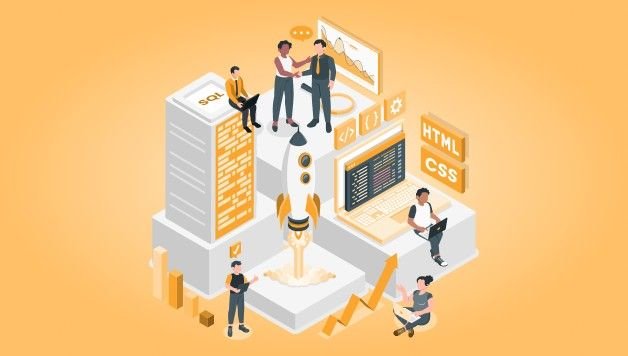Artificial Intelligence (AI) is no longer just a buzzword in the tech industry—it has become the backbone of modern application development. In 2025, AI is transforming how developers build, deploy, and manage applications across industries. At the center of this evolution are Full Stack Developer Frameworks, which now integrate AI-driven features to boost productivity, enhance security, and deliver more intelligent user experiences.
Whether you’re exploring the adoption of a new full stack framework or upgrading existing workflows, AI is reshaping every stage of the development lifecycle.
AI-Driven Coding Efficiency
Smarter Code Generation
One of the most impactful contributions of AI to Full Stack Developer Frameworks is automated code generation. AI-powered coding assistants can now suggest entire functions, write boilerplate code, and even optimize algorithms based on best practices.
For developers, this means fewer repetitive tasks and more time to focus on creative problem-solving. For businesses, it translates into faster delivery and reduced development costs.
Personalized Developer Support
AI doesn’t just generate code—it learns from developers’ habits. Frameworks integrated with AI copilots provide personalized suggestions tailored to each project, significantly accelerating the pace of innovation.
AI in Debugging and Testing
Automated Error Detection
Debugging is often one of the most time-consuming parts of development. AI-powered tools within Full Stack Developer Frameworks are capable of detecting bugs before execution by analyzing code patterns.
Predictive Testing
AI enhances testing frameworks by running predictive models that identify potential edge cases. Instead of waiting for user feedback, developers can proactively solve issues. This results in applications that are more reliable and secure from the start.
Continuous Testing Pipelines
With AI integrated into CI/CD pipelines, tests can run automatically during development. Frameworks in 2025 allow teams to deploy updates quickly while maintaining robust quality assurance.
AI-Powered Deployment and Scaling
1. Intelligent Resource Management
As applications grow, scaling becomes a challenge. AI is transforming deployment by automatically allocating resources based on real-time demand. This ensures apps remain responsive without overspending on infrastructure.
2. Automated Cloud Integration
Frameworks now connect seamlessly with cloud platforms like AWS, Azure, and Google Cloud. AI algorithms monitor usage patterns and automatically adjust deployments, eliminating the need for constant manual intervention.
3. Resilient Infrastructure
By predicting failures before they occur, AI helps ensure uptime and stability. This is especially critical for mission-critical systems where downtime can lead to significant losses.
Future Trends in AI and Full Stack Framework Adoption
1. AI-Native Frameworks
The next generation of Full Stack Developer Frameworks will be built with AI at their core. Instead of adding AI features later, frameworks will natively support AI-driven automation, data processing, and security.
2. Collaboration Between Humans and AI
Frameworks will enable closer collaboration between developers and AI copilots. Developers will focus on creativity and problem-solving while AI handles repetitive or complex tasks behind the scenes.
3. Cross-Disciplinary Integration
AI will allow frameworks to extend beyond web applications into IoT, AR/VR, and real-time analytics. Businesses adopting these frameworks will gain a competitive edge in delivering innovative solutions.
4. Enhanced Security Models
AI-driven frameworks will continue to evolve with built-in fraud detection, intrusion prevention, and compliance features. This is critical as applications handle increasingly sensitive data.
Business Perspective: Why It Matters
For business owners, AI’s integration into frameworks means faster time-to-market, reduced development costs, and more scalable solutions. However, leveraging these benefits often requires professional expertise. Many organizations partner with providers offering fullstack development services to ensure their applications are AI-ready, secure, and aligned with long-term goals.
Conclusion
AI is fundamentally changing the way developers interact with Full Stack Developer Frameworks. From automating code generation and debugging to enabling predictive testing and intelligent scaling, AI is not just an add-on—it’s becoming the foundation of development in 2025.
The adoption of the right full stack framework will determine whether businesses can remain agile and competitive in this rapidly evolving digital era. For developers, learning to work alongside AI tools is no longer optional—it’s the path to future-proofing their careers.
As we look ahead, one thing is clear: AI and Full Stack Developer Frameworks are not just reshaping applications—they are redefining the future of digital innovation.
